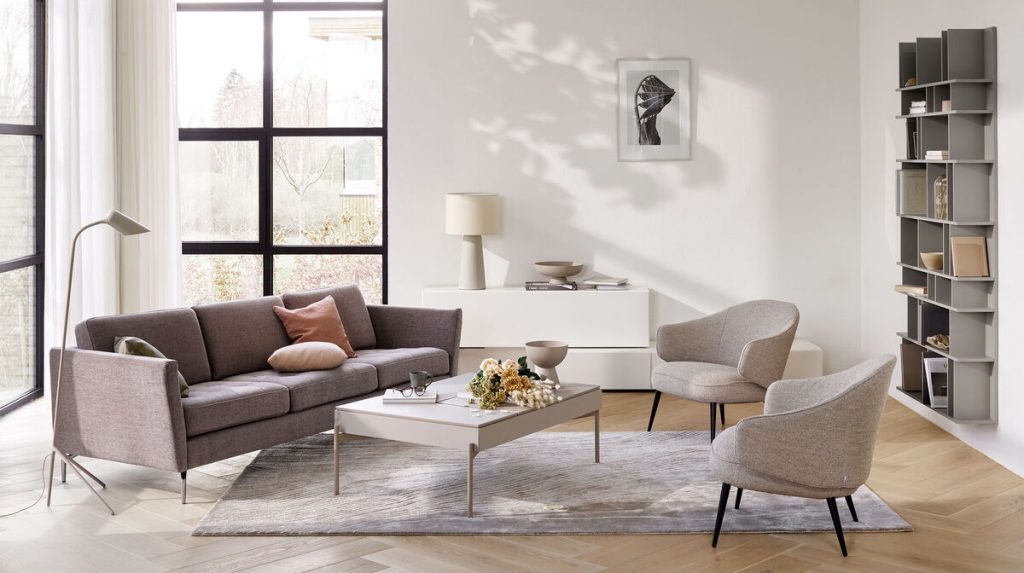Scandinavian design, often hailed as a fusion of simplicity, functionality, and a deep-rooted connection to nature, has long captured the imagination of homeowners and designers alike. Originating from the rugged yet beautifully serene landscapes of the Nordic countries, this design ethos has become a global phenomenon. It’s more than just an interior design trend—it’s a lifestyle philosophy that champions practicality while embracing the beauty of the natural world. As tech continues to intertwine with our daily routines, the principles of Scandinavian design have quietly infiltrated modern tech lifestyles, shaping not just the aesthetics of our gadgets but how we interact with them in our homes.
Historical Roots of Scandinavian Design
At the heart of Scandinavian design lies a compelling history, one that is deeply influenced by the unique geography and climatic conditions of the Nordic countries. It emerged as a response to the dark, cold winters and the need to make the most of the fleeting summer light. The design principles of simplicity, minimalism, and functionality were not mere stylistic choices but necessities born out of the environment.
Denmark, Sweden, Norway, and Finland, each with distinct cultural identities, all contributed to the evolution of this design movement. By the early 20th century, the region’s design ethos began to crystalise, and by the 1950s and 60s, Scandinavian design had found its place on the world stage. Key figures such as Alvar Aalto, Arne Jacobsen, and Eero Saarinen brought the movement international acclaim. Their works, often characterised by organic forms, innovative use of materials, and a seamless blend of aesthetics and function, became synonymous with modern design.
One key aspect of Scandinavian design is its devotion to craftsmanship. In a region rich with forests, wood became the material of choice. Nordic artisans mastered the art of woodworking, producing furniture that was both functional and inherently beautiful. Pieces were often designed with longevity in mind, ensuring they could be passed down from generation to generation—an ideology that still resonates with today’s sustainability-focused consumers.
Scandinavian Design in the Modern Home

Stepping into a Scandinavian-inspired home means experiencing tranquillity, balance, and a connection to nature. While its aesthetic may appear simple, the design’s subtlety and intention behind every detail make it profound. The hallmark features of Scandinavian home design—large windows that flood interiors with natural light, pale colour schemes that reflect brightness, and natural materials such as wood, leather, and wool work in harmony to create airy and grounded spaces.
Neutral tones dominate the palette, with whites, greys, and soft browns forming the backdrop. Splashes of colour, when they appear, are inspired by nature—earthy greens, calming blues, and muted yellows. These hues complement the wooden floors and furniture that define Scandinavian interiors. The presence of natural wood, whether in the form of oak, pine, or beech, is one of the most distinctive elements of this style. It’s not merely a design choice but a reflection of the region’s deep connection to the Earth.
However, its ability to balance form and function truly sets Scandinavian design apart. Furniture is simple yet elegant, often featuring clean lines and minimal ornamentation. Yet, a warmth permeates these spaces through textiles like wool, linen, and sheepskin. These elements soften the space, making it inviting and comfortable rather than stark. Greenery, like potted plants or freshly cut flowers, is another crucial component, adding life and vibrancy to otherwise neutral environments.
The Seamless Blend of Tech and Scandinavian Design
In the digital age, Scandinavian design’s influence has expanded beyond architecture and interiors, becoming a guiding principle in modern technology. Tech companies, especially those focused on creating lifestyle products, have embraced the ethos of Scandinavian design to craft gadgets that are not only sleek and stylish but also user-friendly and sustainable.
Take smartphones, for instance. The rise of minimalism in tech design can be traced back to Scandinavian principles. Devices today are thinner, sleeker, and more streamlined than ever before, with clean lines and simple interfaces that prioritise usability. Brands are moving away from overcomplicated designs, favouring aesthetics harmonious with everyday living spaces. The focus has shifted from creating devices that stand out to seamlessly blending in with the home—often mimicking the very essence of Scandinavian interiors.
Moreover, the principles of sustainability, so deeply ingrained in Scandinavian design, are now being applied to tech. Companies are increasingly using eco-friendly materials, reducing waste, and designing products with longevity in mind—mirroring the long-lasting, handcrafted furniture of the Nordic tradition.
Scandinavian Design in Pop Culture
Scandinavian design’s simplicity and elegance have become a popular aesthetic in modern media, symbolising a clean, stress-free lifestyle. Films, TV shows, and magazines frequently feature interiors that exude this calm and orderly aesthetic. Whether it’s a scene in a cosy, minimalist living room or a sleek tech setup inspired by Scandinavian simplicity, the presence of this design is unmistakable.
Social media platforms like Instagram and Pinterest have further amplified its influence. With countless images of Scandinavian-inspired spaces circulating online, this design has become a benchmark for those seeking to declutter their lives—both physically and mentally. It’s a trend that has evolved into a way of living, merging with the ever-growing wellness movement that prioritises mindfulness and balance in personal and professional spaces.




4 Comments
I’m so glad I stumbled upon this article. It was exactly what I needed to read!
Engaging with The Writing is like savoring a gourmet meal; every bite (or word) is to be enjoyed.
The depth of The research really stands out. It’s clear you’ve put a lot of thought into this.
Hey, I’m Jack. Your blog is a game-changer! The content is insightful, well-researched, and always relevant. Great job!